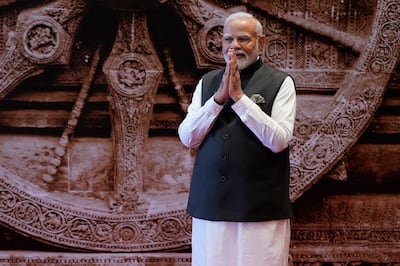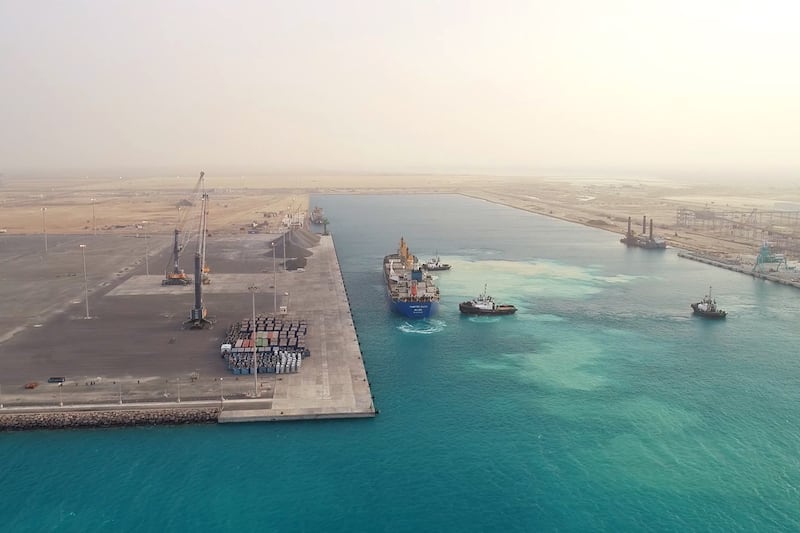A rail and ports deal linking the Middle East and South Asia was announced on Saturday on the sidelines of the G20 summit in New Delhi.
The US, Saudi Arabia, the EU, the UAE and other G20 partners agreed to explore a shipping corridor project to augment trade flows between Europe and India.
“This is a big deal,” US President Joe Biden said. “This is a really big deal.”
The corridor will help boost trade, deliver energy resources and improve digital connectivity.
The deal will benefit low and middle-income countries in the region, and enable a critical role for the Middle East in global commerce.
"India began the Sabang port in Indonesia, the multimodal project with Myanmar and Thailand, Sagarmala in India, and Chabahar in Iran, so this corridor is a natural outcome and provides a vision," Srikanth Kondapalli, professor in Chinese studies at Delhi’s Jawaharlal Nehru University, told The National.
"China's BRI has left in its wake debts in 16 countries including in this region with Sri Lanka, Pakistan and Kenya. India's spice route project thus becomes robust and with the Africa-Asia Growth Corridor with Indonesia and Japan, this becomes inclusive."
The move comes amid US efforts for a broader diplomatic deal in the Middle East that would have Saudi Arabia recognise Israel.
Indian Prime Minister Narendra Modi, European Commission President Ursula von der Leyen and other leaders from around the world participated in the announcement.
The corridor is aimed to link Middle East countries by railway and connect them to India by port, helping the flow of energy and trade from the Gulf to Europe, thereby cutting shipping times, costs and fuel use.
The rail and shipping corridor would help physically tie together a vast stretch of the globe, improving digital connectivity and enabling more trade among countries, including with energy products such as hydrogen.
Ms Von der Leyen described the project as a “green and digital bridge across continents and civilizations.”
She added that it includes cables to transmit electricity and data.
She also announced a “Trans-African Corridor” connecting the Angolan port of Lobito with landlocked areas of the continent: the Kananga province in the Democratic Republic of Congo and the copper-mining regions of Zambia.

The corridor is meant to counter China's vast investment in global infrastructure, aim to increase rail-bound trade between India and Europe by up to 40 per cent.
Michael Kugelman, South Asia Institute director at The Wilson Centre, said the plan could be a significant response to China's much-vaunted Belt and Road Initiative, which has spread Chinese influence, investments and commerce across Europe, Africa, Asia and Latin America.
Amos Hochstein, Biden's coordinator for global infrastructure and energy security, laid out a rough timeline for the project over the next year.
In the next 60 days, working groups will put together a fuller plan and set timelines.
The first phase will involve identifying the areas that need investment and where physical infrastructure can be connected between countries.
Mr Hochstein said the plans can be put into place over the next year so that the project can move onto setting up finances and construction.
With agency reports






